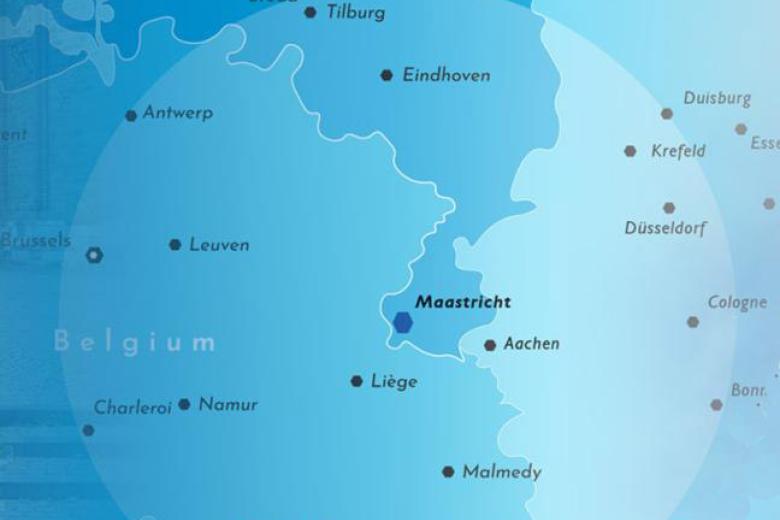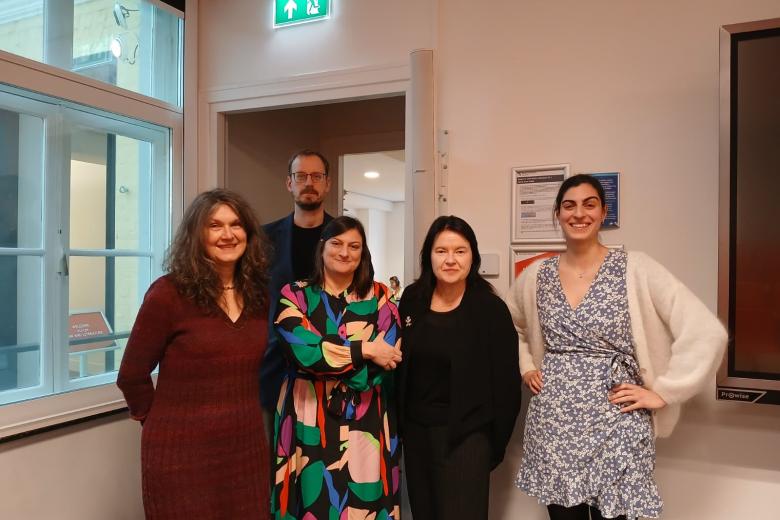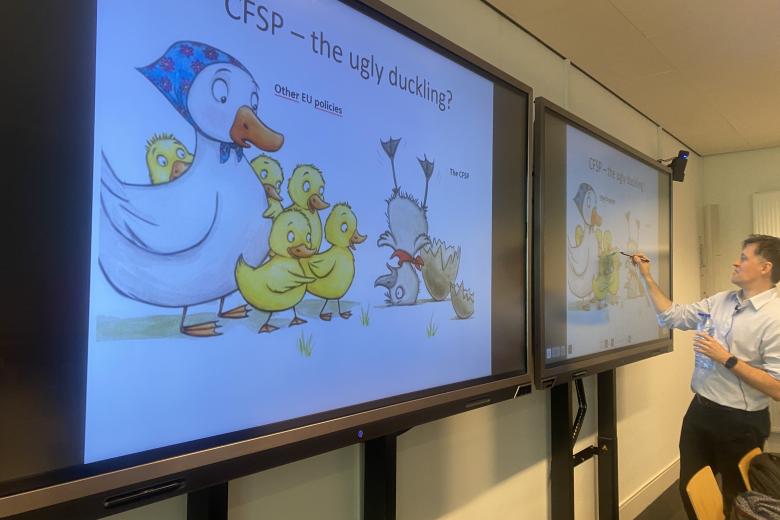How to reach Bali?
In the recent years, we all observed how countries and institutions relied on digital tools to deal with the COVID shocks. For example, as Maastricht University, with the help of the digital learning management system and meeting software CANVAS, ZOOM and TEAMS we were able to continue our education provision and research activities. It is almost unimaginable that we would have been able to offer our courses during the pandemic without those digital tools and services. Yet, we should not forget that being able to use the tools and services does require digital skills.
The reliance of societies on ICT in periods of shock is captured by the term e-resilience. E-resilience is defined as the ability of ICT infrastructure systems to withstand, recover from, and change in the face of an external disturbance. This reliance on ICT is globally present, in developed countries but also in countries with less developed digital infrastructure or lower digitally skilled populations. As a result, the governments and policy makers all over the globe realise that their governments need to invest in the ability to develop ICT policies, build and rely on digital tools and have relevant systems in place to handle quick and responsive in case of shocks. How to do that best though, is not so easy.

This week the G20 SUMMIT in Bali, Indonesia takes place, hosting the heads of states of 20 major established and emerging economies but engaging around 21.000 delegates from all countries of the world. During the event, and in the months ahead of the event, the most important global issues are discussed. The Indonesian hosts have divided the topics in two tracks, namely the Finance track and the Sherpa track. In the Sherpa track, policy relevant topics that do not relate to finance are discussed – and these topics include Digital Skill and Digital Literacy. At the request of ITU Bangkok, a team of researchers from UNU-MERIT and the London School of Economics contributed to the Digital Skills agenda. Over the past 8 months we worked on a policy note that is discussed at the G20 SUMMIT. In academia, the word impact is often equated with academic publications. Yet, by informing the policy makers that debate and decide on the digital skill agenda for the coming years directly, we believe potentially even more impact is made this way.
The note we drafted shares that for governments to develop useful digital tools, there are a number of elements to keep in mind.
Firstly, the level of digital skills of employees within ministries needs to be high. In a world, where the brightest talents are often attracted by the best paying institutions in the private sector, it is especially important to continue training public policy makers in this fast-developing field. It is this group of policy makers and public servants that are responsible for the design of the appropriate policies, selection of good ICT partners and develop implementation strategies. Therefore, these civil servants need to be able to understand the field well. Of course, they are not the people that create the ICT tools and push for ICT innovations, but they are the ones that need to be capable to filter the useful applications and policies from the less impactful ones.
Secondly, the policies and tools developed, that rely on ICT applications or functions to be used by society, should be aligned to the skills and available devices in that society. It is not hard to imagine that in Silicon Valley (USA) it is easier to introduce and encourage the use of complicated apps than in a remote village in for instance Nigeria. People living in Silicon Valley are more likely trained in technology use and are more likely to have funds to buy the equipment. While it can be prestigious for a country to implement state of art ICT technology, in order to increase the e-resilience of a societal group it may be more useful to develop basic tools that the society at stake is able to use as well. For example, some of the most successful interventions in the field of education during covid times were based on the concept of sharing information using relatively straightforward platforms that were accessible by mobile phone.
The third element that is relevant to increase e-resilience in societies, is the fact that ICT should be used for development (ICT4D). The digital divide exists not only in access (not being able to afford devices), but also in ability to use (the generation gap and quality of education gap), and the quality of use gap (the ability to use ICT for your own benefit). We know that there is a global divide among countries and continents. There is a divide among urban and rural populations. There is a divide among the older and younger populations, as well between men and women. The digital divide only increased during COVID times and generally increases in the aftermath of shocks. It is important that policy makers are aware of this divide and realise that by using ICT tools they may not reach certain parts of their population. If policies are meant to enhance development of the whole country, including the less advantaged groups, policy makers should be mindful to impose policy that intends to empower specifically those less advantaged groups. That of course also means they need to be aware that those groups actually have the skills and tools to benefit from the policy that will be implemented.
We all know that what is agreed upon in SUMMITS is not always implemented in practice. But by placing the topic on the agenda, the first hurdle to change is taken. It is important to realise that digital transformations in society need to go hand in hand with digital skill development.
Links:
https://www.g20.org/
https://indonesiabaik.id/ebook/g20pedia-english
https://www.unescap.org/our-work/ict-and-disaster-risk-reduction/eresilience
https://www.itu.int/en/Pages/default.aspx
Also read
-
DigiMach places Meuse-Rhine Euroregion at the heart of industrial digitalisation
DigiMach (Digital Machining) is a new cross-border project uniting Belgium, Germany, and the Netherlands around a common goal: accelerating the digitalisation of the machining industry in the Meuse-Rhine Euroregion.
-
Globalisation & Law Network seminar with Áine Ryall
On 24 November 2025, the Globalisation & Law Network, together with the Institute for Globalisation and International Regulation (IGIR) held the seminar with Professor Áine Ryall.
-
Guest Lecture: Lóránt Havas explores current challenges in the EU’s CFSP
Lóránt Havas delivered a guest lecture on the EU’s evolving CFSP, discussing key legal developments, institutional challenges, and new defence instruments.